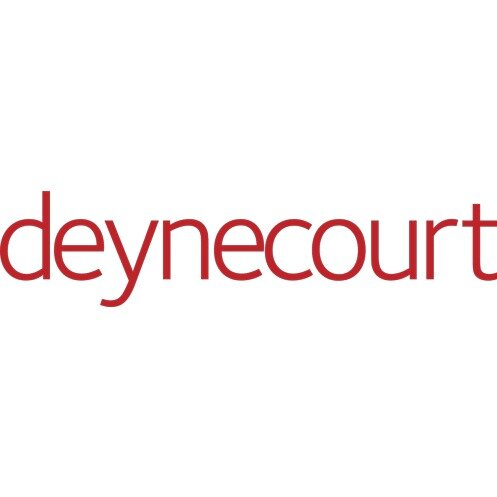Best Energy, Environment & ESG Lawyers in Luxembourg
Share your needs with us, get contacted by law firms.
Free. Takes 2 min.
Or refine your search by selecting a city:
List of the best lawyers in Luxembourg
About Energy, Environment & ESG Law in Luxembourg
Luxembourg is a prominent financial center that places significant importance on sustainability and responsible business practices. The country has developed a comprehensive legal framework concerning energy production and consumption, environmental protection, and Environmental, Social, and Governance (ESG) standards. Energy law in Luxembourg governs the generation, distribution, and use of energy resources, with a strong focus on renewable energy and sustainability. Environmental law addresses the preservation of natural resources, waste management, pollution control, and compliance with both national and European Union directives. ESG law is increasingly important, particularly for financial institutions and companies, as it dictates the integration of environmental, social, and governance criteria into business strategies and reporting. These areas are interconnected and evolving, reflecting Luxembourg's commitment to combating climate change and fostering sustainable economic growth.
Why You May Need a Lawyer
Many individuals and organizations find themselves in situations where professional legal advice in energy, environment, and ESG is crucial. For businesses, navigating compliance with environmental and energy regulations can be complex, especially when planning new projects or expanding operations. Legal guidance is often necessary for obtaining permits, conducting environmental impact assessments, and addressing issues related to renewable energy or carbon emissions. Investors and financial institutions may need advice on meeting ESG disclosure requirements or implementing sustainable finance strategies. Individuals might require legal assistance when facing disputes related to land use, property development, or environmental liabilities. Whether you are a company looking to align with ESG goals, a developer dealing with energy projects, or a resident concerned about local environmental impacts, consulting with a lawyer ensures your interests are protected and legal obligations are met.
Local Laws Overview
Luxembourg's legal landscape in the field of energy, environment, and ESG is shaped by both national legislation and European Union regulations. Key laws include the Energy Act, which governs the production, distribution, and consumption of energy, placing emphasis on renewable sources and energy efficiency. Environmental protection is covered by legislation concerning waste management, air and water quality, biodiversity conservation, and environmental liability for pollution or damages. There are strict protocols for environmental impact assessments, especially related to real estate developments and industrial projects.
In the ESG domain, Luxembourg has positioned itself as a leader in sustainable finance. Financial sector operators are required to comply with EU regulations such as the Sustainable Finance Disclosure Regulation (SFDR) and the EU Taxonomy Regulation, which impose detailed reporting and transparency obligations regarding ESG criteria. Corporate governance standards are also reinforced by local and EU rules, requiring companies to consider and report on their environmental and social impacts. Overall, Luxembourg's policy environment is designed to encourage sustainability and corporate responsibility across all sectors.
Frequently Asked Questions
What is ESG and why is it important in Luxembourg?
ESG stands for Environmental, Social, and Governance. In Luxembourg, ESG is important as it drives sustainable finance, improves risk management, and strengthens investor confidence. ESG criteria are now widely adopted by companies and investors in line with EU regulations.
Do I need an environmental permit for my business in Luxembourg?
Most activities that may impact the environment, such as industrial operations, waste processing, or large-scale construction, require an official permit. The specific type depends on the nature and scale of your activities.
What energy regulations must companies comply with in Luxembourg?
Companies must comply with Luxembourg's Energy Act, as well as relevant EU directives on renewable energy, energy efficiency, and emissions reduction. This includes requirements for permits, reporting, and sometimes energy audits.
How does Luxembourg promote renewable energy?
Luxembourg offers incentives and subsidies for renewable energy projects, including solar and wind power. There are also mandatory targets for renewable energy use set at both national and EU levels.
What are the main environmental responsibilities for businesses?
Businesses are required to prevent pollution, manage waste responsibly, conduct environmental impact assessments when necessary, and comply with regulations on air, water, and soil protection.
Is ESG reporting mandatory in Luxembourg?
Many businesses, especially in the financial sector, are required to report on ESG matters under EU and national regulations. These obligations are expanding to cover more sectors and company sizes.
Can individuals bring environmental complaints or actions?
Yes, individuals and organizations can file complaints or legal actions if they believe environmental laws are being violated or if they are affected by environmental harm.
What are the penalties for non-compliance with environmental laws?
Penalties may include fines, orders to remedy damage, or even criminal prosecution in serious cases. The amount and type depend on the specific violation and its environmental impact.
How does Luxembourg encourage sustainable investments?
Luxembourg is a hub for sustainable finance, offering a regulatory framework that supports green bonds, sustainable funds, and ESG investments through policies and market infrastructure.
Where can I find official guidance on compliance?
Official guidance is available from government ministries, the Luxembourg Financial Sector Supervisory Commission (CSSF), and the Luxembourg Environment Agency, among others.
Additional Resources
If you need further information or assistance, several organizations can provide support:
- Ministry of Energy and Spatial Planning - Responsible for national energy policy and spatial planning matters.
- Ministry of the Environment, Climate and Sustainable Development - Oversees environmental regulations and climate policy.
- Luxembourg Environment Agency - Provides environmental permits, assessments, and information on compliance requirements.
- Luxembourg Financial Sector Supervisory Commission (CSSF) - Regulates the financial sector, including ESG compliance and reporting.
- Chamber of Commerce Luxembourg - Offers guidance to businesses on sustainability standards and regulatory changes.
- Local bar associations - Can help you find specialist lawyers in energy, environment, and ESG matters.
Next Steps
If you require legal advice or support in energy, environment, or ESG matters in Luxembourg, consider the following steps:
- Identify your specific needs, whether it is regulatory compliance, obtaining permits, handling disputes, or corporate ESG strategy.
- Gather all relevant documentation and information about your project, business, or legal issue.
- Contact a lawyer or legal advisor with experience in energy, environment, and ESG matters. The local bar association or professional directories can help you connect with specialists.
- Prepare your questions and priorities ahead of your consultation to maximize the benefit of legal advice.
- Stay informed about ongoing legislative developments in Luxembourg, as laws and regulations in these fields are frequently updated.
Seeking timely and tailored legal guidance can help you navigate complex regulations, avoid costly mistakes, and ensure your operations or investments align with the latest standards in energy, environment, and ESG in Luxembourg.
Lawzana helps you find the best lawyers and law firms in Luxembourg through a curated and pre-screened list of qualified legal professionals. Our platform offers rankings and detailed profiles of attorneys and law firms, allowing you to compare based on practice areas, including Energy, Environment & ESG, experience, and client feedback.
Each profile includes a description of the firm's areas of practice, client reviews, team members and partners, year of establishment, spoken languages, office locations, contact information, social media presence, and any published articles or resources. Most firms on our platform speak English and are experienced in both local and international legal matters.
Get a quote from top-rated law firms in Luxembourg — quickly, securely, and without unnecessary hassle.
Disclaimer:
The information provided on this page is for general informational purposes only and does not constitute legal advice. While we strive to ensure the accuracy and relevance of the content, legal information may change over time, and interpretations of the law can vary. You should always consult with a qualified legal professional for advice specific to your situation.
We disclaim all liability for actions taken or not taken based on the content of this page. If you believe any information is incorrect or outdated, please contact us, and we will review and update it where appropriate.
Browse energy, environment & esg law firms by service in Luxembourg
Luxembourg Attorneys in related practice areas.
Browse energy, environment & esg law firms by city in Luxembourg
Refine your search by selecting a city.















